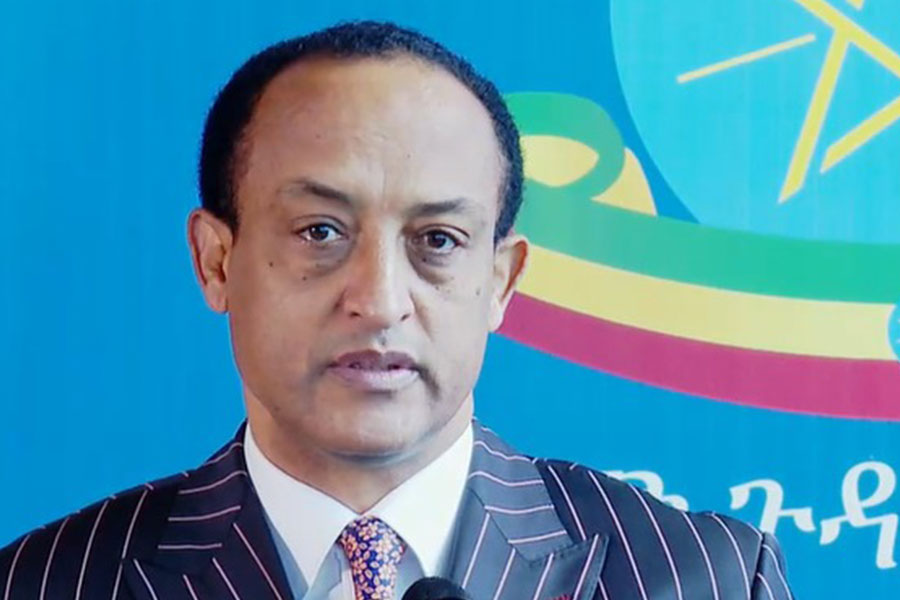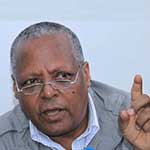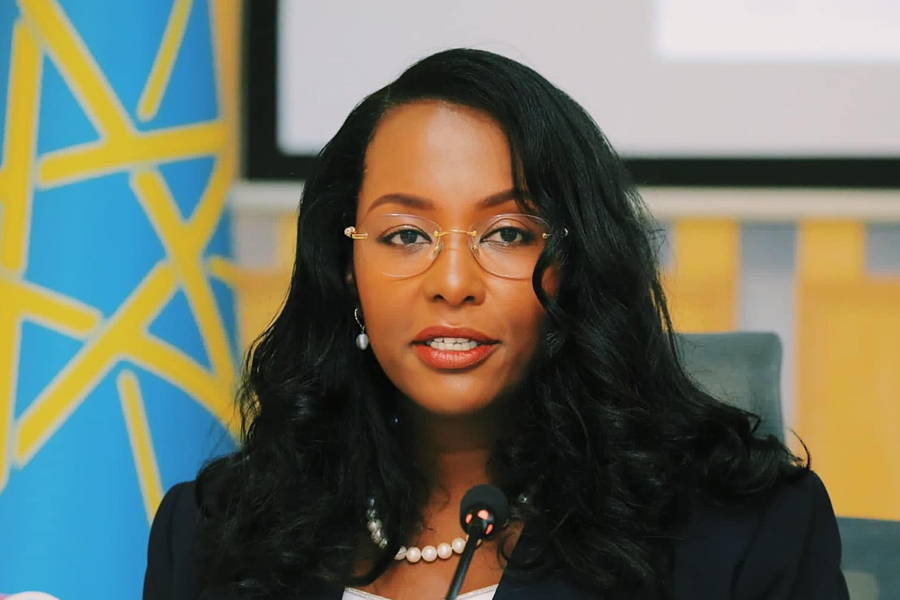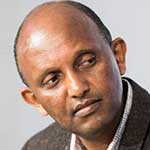
Jul 18 , 2020
By Christian Tesfaye
A day after the unfortunate death of Hachalu Hundessa, musician and political activist, violence and protests across Addis Abeba and parts of the Oromia Regional State ensued. As this was occurring, on June 30, 2020, Ethiopia was put under an internet blackout that lasted until last Tuesday, when it was partially restored.
Whether or not the internet shutdown should have lasted this long is questionable, but when it came to the first few days of the violence and protests that were occurring, it is a much more complicated matter. When law and order had broken down, and the safety of citizens is at stake, analysing the inalienability of freedom of speech, in which access to the internet is encompassed, would require understanding this political right at a much deeper level.
It seems that to our modern minds people should be able to discuss, deliberate and reach agreements on a whole range of political issues. At the end of the day, political challenges are not scientific problems, such as having to cure death or traverse the galaxy. They do not require advanced technology, huge amounts of money, or even an assortment of specially trained engineers and mathematicians.
It is politics - purely a consequence of how individuals and groups in a particular society have chosen to behave. Surely, we can just talk to them, show them the error of their ways, and they will come around. We can even create a system that ensures this is the default state – by instituting freedom of speech as a basic right. Every time misinformation and fake news pop up, they could be smacked right back by factual and logical arguments that would be made against them. This is intuitive and was what the forebearers of the political Enlightenment that today’s liberal democracy was founded upon had in mind.
It is also not true.
It is quite depressing, but it is false to assume that people are rational and could be induced and encouraged into deliberating on actions using only logic and reason. People are at least as rational as they are not. This is why history is full of wars; why it takes us such a long time to recognise injustices being committed right under our noses; why social media is brimming with inaccurate information.
It takes a lot of energy – which some refer to as courage – to weigh political matters (and all politics is personal) rationally. Like any animal whose instinct is to conserve energy, we automatically take the path of least resistance. We have to continually remind ourselves to be objective and on the lookout for our prejudices. More often than not, we fail at this because of the prevailing socio-cultural superstructure – not the Marxian sort, but generally speaking - we find ourselves in. It just takes too much energy to see beyond what the worldview the society we are a part of feeds us.
This is precisely why freedom of speech complicates our already problematic nature. We have characterised ourselves as rational beings who can find our way toward enlightenment. We assume we can best do this when no barriers are placed against the information we can be exposed to, leading to the marketplace of ideas. The rest will handle itself, as in Adam Smith’s conception of the invisible hand, but for politics this time.
But Smith’s invisible hand argument does not hold up on its own. The market may be the best predictor of prices, and thus demand, that we have; just as, the marketplace of ideas may be the best predictor of sentiments on the ground, and thus the socio-economic injustices that people are subjected to. But left to play out their logical conclusion, markets lead to steep inequality in society, while the marketplace of ideas will lead to social fissure and partisanship.
This is because we are nowhere as rational as we pride ourselves to be. We are just more rational than the rest of the animal species - and as anyone that has ever been around animals would admit, this is not saying much.
It would only make sense then that the marketplace of ideas should have rules and norms. A democratic culture - underwritten by responsible media outlets, centrist voices and a populace imbued with a liberal arts education - is indispensable. Strong institutions, able to restrict political differences to the marketplace of ideas from overflowing onto the streets, are just as crucial.
In a country when none of these requirements is in place to lessen the impact of the excesses of the marketplace of ideas, freedom of speech must be seen in a different light.
The internet blackout following the protests and violence that ensued on that fateful Tuesday were thus justifiable as far as they were primarily utilised to uphold law and order and ensure the safety of citizens. We can hold the government to account for failing to recognise how the unfortunate death of Hachalu would reverberate politically and spill over onto the streets. We can argue that law enforcement was passive, and the response was too slow and disorganised.
It would still be very hard to justify how responsible it would have been for the government to allow internet access when the safety of individuals was at stake, and social media was characteristically playing its sensationalising and divisive role. It is not a long-term solution, no doubt, but under the circumstance, for a brief period, it might have been the best short-term one.
PUBLISHED ON
Jul 18,2020 [ VOL
21 , NO
1055]


Life Matters | Mar 05,2022

Verbatim | Jan 27,2024

Fortune News | Sep 26,2021

Verbatim | Jul 13,2020

Commentaries | Jun 05,2021

Fortune News | Jan 14,2023

Life Matters | Oct 01,2022

Verbatim | Jul 20,2024

Verbatim | Aug 22,2020

Radar | Jan 29,2022

My Opinion | 131656 Views | Aug 14,2021

My Opinion | 128020 Views | Aug 21,2021

My Opinion | 125983 Views | Sep 10,2021

My Opinion | 123607 Views | Aug 07,2021

Dec 22 , 2024 . By TIZITA SHEWAFERAW
Charged with transforming colossal state-owned enterprises into modern and competitiv...

Aug 18 , 2024 . By AKSAH ITALO
Although predictable Yonas Zerihun's job in the ride-hailing service is not immune to...

Jul 28 , 2024 . By TIZITA SHEWAFERAW
Unhabitual, perhaps too many, Samuel Gebreyohannes, 38, used to occasionally enjoy a couple of beers at breakfast. However, he recently swit...

Jul 13 , 2024 . By AKSAH ITALO
Investors who rely on tractors, trucks, and field vehicles for commuting, transporting commodities, and f...

Jun 28 , 2025
Meseret Damtie, the assertive auditor general, has never been shy about naming names...

Jun 21 , 2025
A well-worn adage says, “Budget is not destiny, but it is direction.” Examining t...

Jun 14 , 2025
Yet again, the Horn of Africa is bracing for trouble. A region already frayed by wars...

Jun 7 , 2025
Few promises shine brighter in Addis Abeba than the pledge of a roof for every family...

Jun 29 , 2025
Addis Abeba's first rains have coincided with a sweeping rise in private school tuition, prompting the city's education...

Jun 29 , 2025 . By BEZAWIT HULUAGER
Central Bank Governor Mamo Mihretu claimed a bold reconfiguration of monetary policy...

Jun 29 , 2025 . By BEZAWIT HULUAGER
The federal government is betting on a sweeping overhaul of the driver licensing regi...

Jun 29 , 2025 . By NAHOM AYELE
Gadaa Bank has listed 1.2 million shares on the Ethiopian Securities Exchange (ESX),...